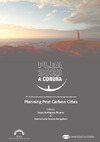Identificador persistente para citar o vincular este elemento:
https://accedacris.ulpgc.es/jspui/handle/10553/78015
| Campo DC | Valor | idioma |
|---|---|---|
| dc.contributor.author | López de Asiain Alberich, María | en_US |
| dc.contributor.author | Castro Bonaño, Marcos | en_US |
| dc.contributor.author | Mora Esteban, Rubén | en_US |
| dc.contributor.author | Lumbreras Arcos, María | en_US |
| dc.date.accessioned | 2021-03-10T09:25:24Z | - |
| dc.date.available | 2021-03-10T09:25:24Z | - |
| dc.date.issued | 2020 | en_US |
| dc.identifier.uri | https://accedacris.ulpgc.es/handle/10553/78015 | - |
| dc.description.abstract | Understanding urban renewal as a participatory process enables to have a strong link between the technical proposal to improve habitability and the inhabitants’ perception of the improvement of their quality of life related to their real needs. This research identifies obsolescence processes in neighbourhoods, including the definition of indicators and their intensity rates in relation to social metabolism; measures applicable in relation to such indicators; application to representative case studies which can be extrapolated to other situations; and assessment of the impact of measures applied to these case studies from a socioecosystemic approach. The main objective of this research is to define, develop and apply the aspects, criteria, processes and indicators derived from the adoption of the socioecosystemic approach. This approach is focused on the improvement of habitability and sustainability conditions– socially, economically and environmentally speaking- in obsolete urban areas. Although there is a broad technical knowledge, we should never forget the social point of view that is key when it comes to deciding the way an action can be designed and applied in order for it to be effective and perceived in a positive way by residents. This article explains the process and tools developed that can be extrapolated to any other Andalusian urban area. | en_US |
| dc.language | spa | en_US |
| dc.source | 35th PLEA Conference on Passive and Low Energy Architecture Planning Post Carbon Cities | en_US |
| dc.subject | 6201 Arquitectura | en_US |
| dc.subject | 620103 Urbanismo | en_US |
| dc.subject.other | Regeneración urbana | en_US |
| dc.subject.other | Indicadores urbanos | en_US |
| dc.subject.other | Procesos participativos | en_US |
| dc.subject.other | Resiliencia | en_US |
| dc.title | Participatory Processes Impelling Urban Socioecosystem Renewal | en_US |
| dc.type | info:eu-repo/semantics/conferenceObject | en_US |
| dc.type | conferenceObject | en_US |
| dc.relation.conference | PLEA Conference on Passive and Low Energy Architecture Planning Post Carbon Cities | en_US |
| dc.identifier.doi | 10.17979/spudc.9788497497947 | en_US |
| dc.description.lastpage | 563 | en_US |
| dc.description.firstpage | 558 | en_US |
| dc.investigacion | Ingeniería y Arquitectura | en_US |
| dc.type2 | Actas de congresos | en_US |
| dc.utils.revision | Sí | en_US |
| dc.identifier.ulpgc | No | en_US |
| dc.contributor.buulpgc | BU-ARQ | en_US |
| item.grantfulltext | open | - |
| item.fulltext | Con texto completo | - |
| crisitem.author.dept | Departamento de Arte, Ciudad y Territorio | - |
| crisitem.author.orcid | 0000-0001-9422-394X | - |
| crisitem.author.fullName | López De Asiain Alberich, María | - |
| Colección: | Actas de congresos | |
Visitas
62
actualizado el 11-ene-2026
Descargas
45
actualizado el 11-ene-2026
Google ScholarTM
Verifica
Altmetric
Comparte
Exporta metadatos
Los elementos en ULPGC accedaCRIS están protegidos por derechos de autor con todos los derechos reservados, a menos que se indique lo contrario.
